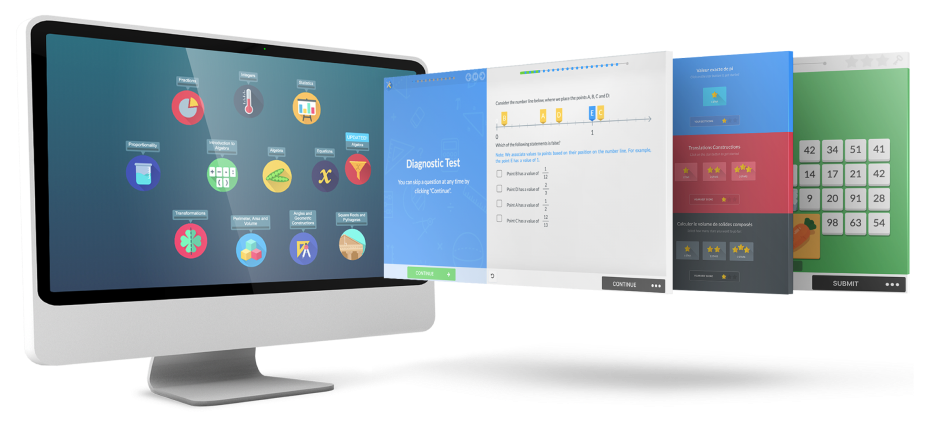MathemaTIC is a multilingual, personalized learning environment that provides students with an engaging learning experience to develop a strong foundation and confidence in mathematics. MathemaTIC is developed through collaborative efforts between content, technology, and research experts from the Luxembourg Ministry of Education (division of SCRIPT), the University of
Luxembourg, Luxembourg Centre for Educational Testing, Luxembourg Institute of Socio-Economic Research, Le Centre de gestion informatique de l'éducation, and math educators from the French Ministry of Education (Division of Evaluation, Planning and Performance). To view the information brochure, click here.

Personalized

Multilingual

Adaptive

Dashboards

Recommended for use in the classroom by teachers and students, or for independent use at home, this multilingual platform serves the pedagogical objectives of differentiation, individualization, and personalization while meeting the wide range of students’ needs. Based on their school year, students have access to interactive modules that are aligned to their curriculum.
Through a multi-adaptive process, students begin each module by attempting a diagnostic assessment that is designed to calibrate their learning capabilities for each curriculum module. They can complete the assessment in the language of their choice. On completion of the diagnostic assessment, interactive items within each module are unlocked. The interactive, formative items in each module are categorized into (A) Learning Phase, (B) Practicing Phase, and (C) Applying Phase.
In the Learning Phase, students are provided with access to items that provide them with an understanding of concepts through voice-enabled videos. In the Practicing Phase, students work on mastering their computational and critical thinking skills. In the Applying Phase, students are presented with real-world problems where they apply the computational and critical thinking skills to reason and solve situational-based problems.
A comprehensive summative assessment at the end of each module measures the student’s learning and achievement. This multi-adaptive process has proven to improve students' problem-solving skills and inform the design of mathematical items for greater efficiency.





